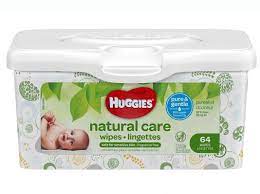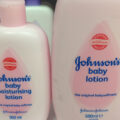Baby wipes are disposable cloths used to cleanse the sensitive skin of infants. These cloths are made from non-woven fabrics similar to those used in dryer sheets and are saturated with a solution of gentle cleansing ingredients. Baby wipes are typically sold in plastic tubs that keep the cloths moist and allow for easy dispensing.
The technology to create disposable non-woven towelettes was developed in the late 1970s, and the first baby wipe products appeared on the market soon after. Originally, due to the expense of the specialized equipment required to produce these products, major brands like Kimberly-Clark’s Huggies and Proctor & Gamble’s Pampers dominated the market. As the technology matured and became more affordable, smaller brands began to appear. By the 1990s, many large supermarket chains had their own private label brand of wipes made by contract manufacturers.
Wipes intended for a therapeutic purpose, such as killing germs on the skin, or treating acne, diaper rash, or other skin conditions, are drugs under the law. Drugs must meet requirements for FDA approval for safety and effectiveness before they go on the market. Drugs are regulated by FDA’s Center for Drug Evaluation and Research. While Wipes intended to control germs on inanimate surfaces (disinfect or sanitize) and wipes containing insect repellents are regulated by the Environmental Protection Agency.
Design
Baby wipes are designed to be durable enough for heavy duty cleaning tasks, yet still be disposable. The fabric used for the cloths is chosen on the basis of durability, cost, and absorbency. This fabric is then saturated with a cleansing solution designed to be mild yet effective. Packaging is also an important design component and several patents have been granted for containers made specifically for pre-moistened towelettes. These packages are designed to easily dispense single sheets while keeping the towelettes moist until ready for use. Thermo-formed plastic tubs are most commonly used to package wipes in different amounts ranging from a few dozen to several hundred.
Marketers are continually designing new styles, sizes, and formulations of baby wipes. Large-pack refills and attractive graphic labels are some of the recent innovations in the category. One private-label manufacturer uses Jim Henson’s Muppet Babies to differentiate its product from competitors. Some products even have character outlines imprinted on the actual wipe. In Canada, premium quality wipes are marketed as having the advantages of being thicker, more absorbent, greater stretchability, hypo-allergenic, alcohol-free, pH-balanced, and/or unscented. Another factor that has impacted baby wipe design is the trend toward natural products. Marketers routinely add a variety of natural ingredients, such as aloe vera and oatmeal, to increase the consumer appeal of their products.
Do Baby Wipes Expire?
Baby wipes do not expire, but they do lose their moisture over a 24-30-month time period. The majority of unopened packages have a shelf life of 2 to 3 years. After this period they might just become dry, less effective, or moldy. Storing them unopened and undamaged in cool, dry places will increase their shelf life and make them effective for years to come.





